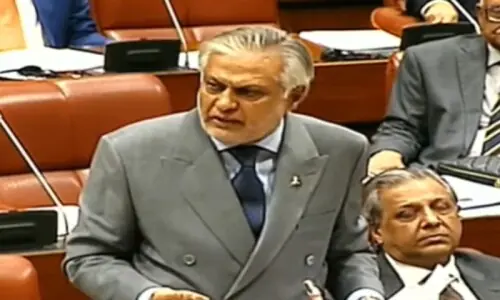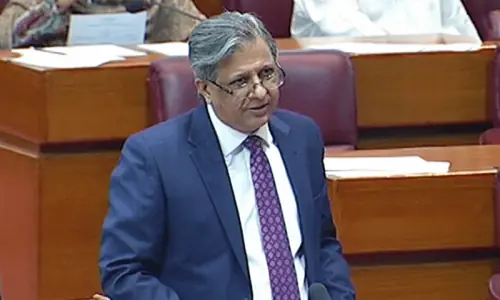KARACHI: Chairperson of the Human Rights Commission of Pakistan Zohra Yusuf has said that the repressive era of Ziaul Haq is not over as the Prevention of Electronic Crimes Act (PECA) 2016 inculcates self-censorship, curbs freedom of expression and restricts civil rights.
She said this while speaking at a panel discussion titled ‘PECA — yet another tool in the hands of the state to muzzle and suppress dissent’ held at T2F on Thursday evening. The other panellists were former chairperson of the National Commission on the Status of Women Anis Haroon and political activist Jibran Nasir. The event was moderated by digital rights activist Farieha Aziz.
“Fifty amendments were presented by the government that led us to believe that the law will be less dangerous,’’ said Anis Haroon. “This law is unconstitutional in nature and the process lacked consensus.’’ There would be selective use of the act and it had become easier to silence voices that encouraged resistance and dissent, she added.
“Our digital space now is as free as China’s digital space,’’ said Nasir, adding that there was no consideration for ‘privacy’ in the current act. “It is more troubling for the journalist community than activists since critical infrastructure deprives us of interception and confines the narrative space,’’ said the activist speaking to Dawn.
The director of civil society organisation Bolo Bhi, Farieha Aziz, said such cases had been witnessed in larger democracies of the world, including the United States, the United Kingdom and India. “The law is here and we need to decide what can be done next, our fight for resistance will not stop,’’ she said.
‘’An oversight committee should be made comprising human rights workers, parliamentarians, civil society and lawmakers to discuss such issues,’’ said Haroon, adding that no law could be passed without consensus. “Senate human rights committees should be reviewed in order to be able to move forward.’’
“We are all living in a state of paranoia where our data can be retained for a year and an official can access it without proper court procedure that permits a warrant to do so,’’ said Nasir, adding that there was an absence of surveillance and privacy policies in the act. “The language of the act is wide-ranging and vague.’’
The panel stressed the importance of legal literacy, awareness regarding the role of PECA and incompetence of the act in the discussion. “The process and fight will continue but civil society needs to be aware of it,’’ said Aziz.
Published in Dawn, September 9th, 2016






























